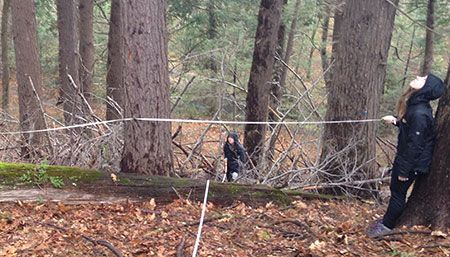You are here
Places
The Sustainable Working Landscapes research program is keyed to the interests of each community of conservation landowners, but also aims at shedding light on a common set of issues of land stewardship across New England.

Our model programs are located in the suburban community forests of Weston, Massachusetts, and the conservation lands of Walden Woods in neighboring Lincoln and Concord.
We are also collaborating with similar research programs at a variety of other sites in Connecticut, Massachusetts, New Hampshire, and Vermont.
Our research model involves a partnership between a conservation landowner (or group of landowners); a local research institution such as a university; and use of students and volunteer citizen scientists. This approach yields multiple benefits to sustainable stewardship, ecological science, and education—synergistic engagement that we believe helps build and sustain support for community land conservation.
We are conducting research on the following subjects:
- Long-term forest vegetation monitoring using inventory plots, often comparing managed and unmanaged areas
- Historical changes in vegetation, using tree cores and archival research
- The impact of white-tail deer, including population censusing through scat counts, browse monitoring, exclosures, and lady’s slipper censusing
- The impact of pests and their treatment, including hemlock woolly adelgid and white pine needle disease
- Monitoring open land species management through vegetation inventory plots and wildlife surveys

